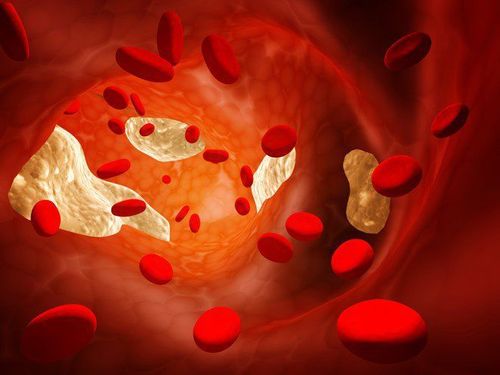This is an automatically translated article.
The article was professionally consulted by Doctor General Internal Medicine Doctor - Department of Medical Examination & Internal Medicine - Vinmec Hai Phong International General Hospital.
Today, there is a lot of advice and advertising about taking a daily omega 3 supplement. Because omega is actually a form of good fat for the body.
1. Why Omega is a Good Fat
Not all fats are unhealthy. Omega-3 fatty acids are one of the good fats. They may help reduce the risk of heart disease, depression, dementia, and arthritis. Your body cannot make them. You must eat or supplement with omega-3.
2. There are 3 types of Omega-3
Omega-3 fatty acids come in many forms. The types found in fish, called DHA and EPA, are the omega-3s with the most health benefits.
Another form called ALA is found in vegetable oils, flaxseeds, walnuts and dark leafy vegetables like spinach.

3. How does Omega-3 fight disease?
Omega-3 fatty acids help curb inflammation in your blood vessels (and the rest of your body). In high doses, omega-3 acids also curb irregular heart rhythms and lower levels of blood fats, so-called triglycerides, a blood fat index. Finally, they can also slow the accumulation of fatty plaque inside the blood vessels.
If you have heart disease, a prescription omega-3 dose can help protect your heart. Some studies show that for heart attack survivors, increasing omega-3 intake leads to fewer heart attacks and less mortality.
3.1 Improve Your Heart Rate Omega-3s seem to have a stabilizing effect on the heart. They can lower your heart rate and help prevent arrhythmias (irregular heart rhythms). Some common sources of omega-3s are fish, walnuts, broccoli, and edamame (green soybeans usually steamed and served in pods).
3.2 Lowering Blood Fats Omega-3 DHA and EPA can lower your blood fat, a type of blood fat that has been linked to heart disease. You should talk to your doctor before taking an omega-3 supplement.
3.3 Lowering Blood Pressure Omega-3s can help lower blood pressure. Plan to replace red meat with fish in some meals. Avoid salty fish, such as smoked salmon. If you have high blood pressure, limiting salt is probably one of the things your doctor has recommended.
3.4 Helps Prevent Stroke So they can help prevent strokes caused by blood clots or blocked arteries. However, taking omega-3 supplements in high doses can lead to stroke and more bleeding, so check with your doctor.

3.5 Helpful for Mild Rheumatoid Arthritis Studies show that omega-3s can limit joint pain and stiffness in people with mild rheumatoid arthritis. A diet rich in omega-3s may also enhance the effectiveness of anti-inflammatory drugs.
3.6 Depression and brainpower? Depression is rarer in countries where people eat a lot of omega-3s. But omega-3s are not a cure for depression. If you have depression, talk to your doctor about therapies that can help you feel better.
3.7 Aids in Attention Deficit Hyperactivity Disorder (ADHD) Some studies show that omega-3 supplements can reduce symptoms of ADHD. Omega-3 fatty acids are important for brain development and function. Omega-3s may provide some complementary benefits to traditional treatment, but they are not a substitute for primary treatment.
3.8 Dementia Research There is some evidence that omega-3s may help fight memory loss and age-related mental decline. In one study, older adults whose diets were high in omega-3 fatty acids were less likely to develop Alzheimer's disease than others.
Also, for vegetarians; do not eat fish or fish oil, you can get a dose of DHA from algae supplements; or foods like canola oil, flaxseeds, walnuts, broccoli and spinach - or products fortified with omega-3s.

Please dial HOTLINE for more information or register for an appointment HERE. Download MyVinmec app to make appointments faster and to manage your bookings easily.













